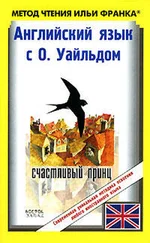Array Lang - The Book of Princes and Princesses
Здесь есть возможность читать онлайн «Array Lang - The Book of Princes and Princesses» — ознакомительный отрывок электронной книги совершенно бесплатно, а после прочтения отрывка купить полную версию. В некоторых случаях можно слушать аудио, скачать через торрент в формате fb2 и присутствует краткое содержание. Жанр: foreign_antique, foreign_prose, на английском языке. Описание произведения, (предисловие) а так же отзывы посетителей доступны на портале библиотеки ЛибКат.
- Название:The Book of Princes and Princesses
- Автор:
- Жанр:
- Год:неизвестен
- ISBN:нет данных
- Рейтинг книги:3 / 5. Голосов: 1
-
Избранное:Добавить в избранное
- Отзывы:
-
Ваша оценка:
- 60
- 1
- 2
- 3
- 4
- 5
The Book of Princes and Princesses: краткое содержание, описание и аннотация
Предлагаем к чтению аннотацию, описание, краткое содержание или предисловие (зависит от того, что написал сам автор книги «The Book of Princes and Princesses»). Если вы не нашли необходимую информацию о книге — напишите в комментариях, мы постараемся отыскать её.
The Book of Princes and Princesses — читать онлайн ознакомительный отрывок
Ниже представлен текст книги, разбитый по страницам. Система сохранения места последней прочитанной страницы, позволяет с удобством читать онлайн бесплатно книгу «The Book of Princes and Princesses», без необходимости каждый раз заново искать на чём Вы остановились. Поставьте закладку, и сможете в любой момент перейти на страницу, на которой закончили чтение.
Интервал:
Закладка:
Marie Louise does not seem to have had the boy much with her, though Isabey, the famous artist, was constantly ordered to paint his picture, and it was his father whom he first learned to know. Napoleon had always been fond of playing with children; and before the birth of his own son, his nephews and nieces were constantly about him. Best of all, he had loved the little Napoleon Charles, son of his brother Louis, King of Holland, and Hortense Beauharnais, and Charles was never happier than when trotting about at 'Nanon's' side. Nanon was the pet name of Napoleon. Together they would go and feed the gazelles with tobacco – which (if strong) was very bad for the gazelles, and made them ill for a whole day after – or the Emperor would take him to parade, and Charles would cry, 'Long live Nanon the soldier!' And how proud Nanon was one day when Charles, who had been lost at a review held at Boulogne, was found wandering between the line of fire of the two armies, not a bit afraid of the guns.
Charles was a very nice little boy, and had been taught good manners by Queen Hortense. When he went into Nanon's dressing-room he did not pull about the things that were lying on the dressing-table, but sat still while he chattered to his uncle, or repeated some fable of La Fontaine's which he had learned the day before. He was a generous little fellow, and would readily give away his toys or sweets, and only laughed when Napoleon pulled his ears, instead of getting angry like his cousins, the little Murats. Every day he did his lessons, and was allowed sometimes, as a great treat, to copy out the 'Wolf and the Lamb,' or the 'Lion and the Mouse,' or the 'Goose with the Golden Eggs,' to show to Nanon. But by-and-by he had to say good-bye to Nanon and go back to his father and mother in Holland, where he fell ill and died, at the age of four and a half, in May 1807.
After Charles's death Napoleon made a pet of the dead child's younger brother, Napoleon Louis, though he never took the elder child's place in his uncle's heart. Still, the Emperor liked to have Louis about him, and swung him on to his knee at breakfast, and gave him bits of omelette or cutlet on his fork. Louis, of course, wanted to do everything his uncle did, and one day insisted on sipping his coffee, but he did not like it, and made a face. 'Oh, Louis!' cried the Emperor, 'your education is certainly not finished, as you have not learned how to hide your feelings.' The boy stared and grew rather cross, for he felt he was being laughed at, though he did not understand why. His temper was never as good as his brother's, and he often flew into a rage when Napoleon teased him, as he was very fond of doing. One morning, when Louis was three years old, he was breakfasting with the Emperor, and was just going to eat an egg, when Napoleon caught it up, and held it out of his reach. 'Give me my egg, or I will kill you,' said Louis, picking up a knife. 'Would you really kill your uncle?' asked Napoleon.
'Give me my egg, or I will kill you,' repeated Louis, louder than before; and Napoleon laughed and gave it back to him, and patted his head, saying, 'Ah, some day you will be a fine fellow!'
But now that he had a son of his own, who would by-and-by inherit the Empire he had created and tread in his footsteps, Napoleon could not make enough of him. He, too, came to breakfast, and, much to Madame de Montesquiou's disgust, the Emperor would dip his fingers in the red wine he was drinking, and give it to the baby to suck. The King of Rome would shrink away in terror from the bunch of nodding plumes on his mother's bonnet, but he smiled and crowed when his father lifted him in the air. Sometimes, however, the play got too rough, and the child would screw up the corners of his mouth and begin to cry. Then the Emperor would stop and look at him gravely, and say to him:
'What, Sire! are you crying? A king, and yet you cry! Oh, that is very bad! Kings don't cry!' and he would begin to make faces, which the baby loved, and it would break into smiles directly. The boy grew quickly, and at eight months old he was already trying to walk, but, on the other hand, he was very backward in talking. As he got older, he would often manage to escape from the nursery, and, running along the passage, knock with his fists on the door of the Emperor's study.
'Open! I want papa,' he would say to the sentry, who always answered:
'Sire, I must not let in your Majesty.'
'Why not? I am the little king.'
'But your Majesty is alone!' replied the sentry, who had been ordered not to admit the boy unless Madame de Montesquiou was with him. The child's eyes filled with tears, but hearing 'Maman Quiou's' voice behind him, he took hold of her hand and looked at the man, saying:
'Now open it. The little king desires it.'
'His Majesty the King of Rome,' announced the usher, and the little fellow ran straight up to his father, sure of his welcome. No matter how occupied the Emperor might be, the child was never sent away. His father would hold him on his knee while he signed State papers, or walk up and down the room with the boy on his back as he dictated despatches to his secretaries, or, greatest joy of all, he would allow his son to play with the little wooden soldiers that he kept on the table when planning his campaigns. In face the little king grew daily more like an Austrian, though his father tried in vain to see some resemblance to himself. But in many ways he showed his Corsican blood, and chiefly in the sudden bursts of temper to which he was liable. These were always stopped at once by his governess, who never spoilt him herself or suffered anyone else to do so. One day, when something had displeased him, he stormed and raged till Madame de Montesquiou feared he would fall into convulsions, as his cousin, Achille Murat, had done only the week before. Finding that the child would listen to nothing, she ordered an attendant to close all the shutters. The boy, astonished at the sudden darkness, ceased crying at once, and asked why the sun was shut out.
'So that nobody might hear you, Sire. The people would never want you for their king if they knew how naughty you could be!'
'Did I scream very loud?' he inquired in rather a small voice.
'Very,' replied the governess.
'Do you think they heard?'
'I am afraid so.'
At this answer his tears began to fall again, but quite silently. He made a violent effort to check them, and when he could speak, he stretched up his arms to his governess, and whispered, 'I'll never do it again, Maman Quiou. I am very sorry.'
By the time he was two years old the little king had a whole roomful of toys of every sort: there was a drum, mounted in silver, that Napoleon had given him on his first birthday, before the ill-fated army started for Russia; there was a top in an ivory frame, and a Polish lancer who could move his legs; there was a wonderful pearl and enamel box, with a locket inside, and out of the locket a bird jumped and sang. The King of Rome cherished them all; but best he loved a woolly sheep with a velvet collar and golden bells. He would play with this sheep for hours together, pretending it was the lamb that the wicked wolf was trying to catch, as told in his favourite story. When he went out, he had two real white sheep to draw him, in a beautiful little carriage given him on his birthday by his aunt, Caroline Murat, and in this he drove along the riverside terrace of the Tuileries, dressed in white muslin and lace, with the red ribbon of the Legion of Honour peeping out of the folds. And the Parisians were always delighted to see him, and at the bidding of his governess he smiled and waved his hand, for the Emperor was most particular about his manners. He was also anxious that the child should grow up as strong and hardy as he himself had done, so every day, whatever the weather, the little prince drove out in his carriage, with a merino pelisse over his muslin frock, and a pink or blue loose coat on top. The Empress thought it a pity, and feared her son might catch cold, but in this matter Napoleon had his way.
Читать дальшеИнтервал:
Закладка:
Похожие книги на «The Book of Princes and Princesses»
Представляем Вашему вниманию похожие книги на «The Book of Princes and Princesses» списком для выбора. Мы отобрали схожую по названию и смыслу литературу в надежде предоставить читателям больше вариантов отыскать новые, интересные, ещё непрочитанные произведения.
Обсуждение, отзывы о книге «The Book of Princes and Princesses» и просто собственные мнения читателей. Оставьте ваши комментарии, напишите, что Вы думаете о произведении, его смысле или главных героях. Укажите что конкретно понравилось, а что нет, и почему Вы так считаете.












